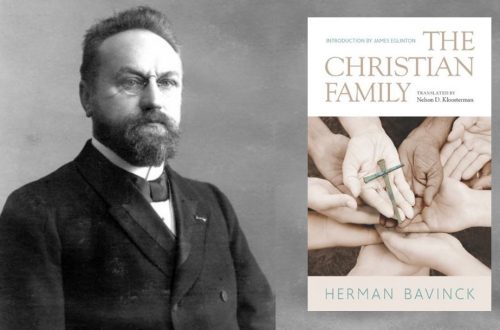One of the most dangerous things that a theologian can do these days is attempt to describe and/or define the Emerging Church Movement. It’s a perilous task not because one is literally risking life and limb, but because those within the movement have taken great pains to resist being pigeon-holed into any rigid system of belief. Not only that, the movement is in many ways so disparate that characterization has appeared to many to be a well-nigh impossible task.
That is why Scot McKnight’s recent article in The Covenant Companion provides and invaluable resource for those in search of a succinct description of what the Emerging Movement is all about. In “The Future or Fad? A Look at the Emerging Church Movement,†McKnight undertakes to describe the Emerging Movement [henceforth, “EMâ€] and to give a brief critique of it.
McKnight’s essay is important not merely because his perspective is that of an accomplished biblical scholar, but because he writes as an insider who is sympathetic to the concerns of EM. No one could fairly accuse him of trying to pigeon-hole anyone.
McKnight gives a thumbnail sketch of EM at the beginning of the piece:
It is a conversation about the future direction of the evangelical church in the postmodern world; it’s a reaction and a protest against traditional evangelical churches; and it’s a conversation focused less on theological niceties and more on “performing†the gospel in a local setting.
“Emerging movement†is an umbrella term that refers to a group of churches, pastors, writers, and bloggers who are exploring the missional significance of culture, philosophy, and theology in a postmodern context (p. 7).
The rest of the article unpacks what EM is in terms of its “pros†and “posts.†EM is pro-missional, pro-Jesus, pro-church, pro-culture, and pro-sensory worship. But it is post-evangelical, post-liberal, post-doctrinal, and post-Bible-study piety. If you are scratching your head wondering what each of these descriptors mean, then I shall leave it to you to read the article and see for yourself. I don’t want to rehash the entire thing here. For my part, I will offer just a few critical reflections on McKnight’s piece.
First, McKnight points out how difficult it has been for theologians to make a “systematic critique†of EM. In this vein, he alludes to D. A. Carson’s description of EM in the recent book Becoming Conversant with the Emerging Church. According to McKnight, Carson misses the mark in his critique because . . .
Carson criticizes the whole movement by focusing on one leader (Brian McLaren), one issue (postmodern epistemology—the theory of how one knows truth), and one problem (the postmodern denial of truth). The EM is more than McLaren, often not at all concerned with epistemology, and rarely (if ever) does it deny truth. Instead of epistemology, the EM is concerned with ecclesiology—how to “do church†. . . in our current context (p. 8).
Though there may be some truth to the charge that Carson focused too narrowly on Brian McLaren (and Steve Chalke), the rest of McKnight’s description of EM belies the claim that the EM is not concerned very much about epistemology. In fact, two of the hallmarks of EM have been on the one hand its rejection of propositional truth claims and on the other hand its denial of the metanarrative—two features that McKnight takes note of in his essay (pp. 8, 9). Thus one would be hard-pressed to argue that EM is not concerned with epistemology when so many of its adherents desire to move away from “rationality and systematic thinking†when doing theology (p. 8). If that’s not an epistemological statement, I don’t know what is!
Moreover, EM’s denial of the metanarrative suggests epistemological anarchy of the first order. McKnight writes,
The EM tends to celebrate the demise of meta-narratives, finding in this demise the opportunity for micro-narratives of local communities. Some EM thinkers suggest that the Christian faith is one such meta-narrative that can’t be proven true.
EM’s postmodern embrace of the death of the metanarrative is no surprise. But it is surprising that McKnight would suggest that D. A. Carson’s criticism paints with too broad a brush when McKnight’s essay points out that the death of the metanarrative is a key feature of the EM. One of Carson’s central critiques in Becoming Conversant is that the EM has not been clear whether it considers the Gospel to be the supreme metanarrative, or just one among many metanarratives. This is no obscure theological point. If the Gospel metanarrative if relativized, the heart and soul of Christianity is lost.
McKnight acknowledges and critiques an important and controversial feature of EM—the tendency to favor the Gospel narratives about Jesus over the didactic letters of Paul. This tendency is right in line with EM’s aversion to the abstract, systematic theologies of the Reformation that are rooted in logic and reason. The EM likes narratives, and Paul’s misogynistic theologizing just does not do it for many EM-types. EM wants to root its theology in the incarnate life of Jesus, not the letters of the apostle Paul.
There are many problems with this kind of “canon within a canon†theology. Just to name one, it pits Jesus against the Apostle Paul in a way that does not comport with Scripture. Jesus is the one who appointed Paul to speak for Him as an apostle, and it makes little sense for Christians to ignore the commission given by Jesus to Paul.
There is much more that I would like to comment on in McKnight’s article, but this has gone on long enough. I will be writing more on the Emerging Church is subsequent posts. But let me go ahead and finish this one by commending McKnight’s article to you. You should read it. The critiques he gives at the end are right on the money.




5 Comments
Bruno W
There is no doubt that EM needs to expound more on some of these important areas. Certainly, a broader reading of the NT is needed; a rejection of the gospel as the meta-narrative we all are truly longing for is disturbing. So I’m with you on some of these concerns.
What I fear though is that the greater evangelical church will miss some of these key intuitions EM brings up because we are too concerned about making sure we explain all the areas where they’re wrong. That’s why I appreicate McKnight so much; he doesn’t want to miss the growing experience the Emergent folks can clearly help the church with. Why is he sensitive to their cause? Obviously, because he sees areas where they are on the right track AND areas where the greater evangelical church is deficient.
I do want to respond to your comment that EM has “rejected propositional truth claims.” In all my reading (which certainly isn’t extensive), I have never heard an Emergent Christian say they reject propositional truth claims. I couldn’t tell exactly where you got that from McKnight’s article. What I typically here are Post-foundationalists saying, “we need to go beyond mere propositional statements in our understanding and search for truth”. That’s quite different. LeRon Shults’ “The Post-Foundationalist Task of Theology” is a perferct example of this. Maybe I’m ignorant of a substantial segment of the emergent church rejecting truth or propositional truth claims, but I think it’s possible that charge is a little exaggerated.
sofyst
Is it wrong to assume that you, Dr. Burk, are making synonymous the rejection of ‘meta-narratives’ and the rejection of ‘propositional truth claims’?
This is to attempt to answer Bruno.
Most assureadly people are not going to come out and say ‘I reject propositional truth claims’. Some will, most won’t. But I think that by ’embracing the death of the metanarrative’ one does just that.
Denny Burk
Sofyst,
No, the two aren’t synonymous. They are related but not synonymous.
http://www.gnpcb.org/product/1581347723/browse/53
Luf,
Denny
Michael
Emerging Churches by Gibbs seems to be a well accepted self-definition of the Emergent movement.
The main thing that the EM folks have going for them is that they are basically the only ones out there fighting the influence of Modernity on the Christian Church (at least among Protestants). Some, like VanHoozer, are doing it in the academy, but who else is doing it at a popular level?
For now, I think we will all have to wade through the manure in order to find the diamonds.
David Emme
I am fairly certain once studying and trying to find the differing philosophies foundational to postmodern emergent philosophy is nothing short of a new modernism that teaches nearly the same exact beliefs in liberal social gospel.
The one example so clear is what is the differance between the old liberal amillinealism and emergent bringing in the kingdom of God?
to answer-the only differances are the names.
This is how emergent thoughts not only appeases liberal modernism in Christianity but reintroduces the same modern conceptions into the modern culture of Christianity.
It is not insigificant to realise one of the fundamentals of the faith is a visible return of Christ as Calvinists, Baptists both believe the same exact thing with out regaurds to timing.
This specifically opposed the liberal amillinialism.
Where the fundamentalist believes God will set up his Kingdom as the first act of Christ as king is to wipe out Gentile armies intending to extinguish God’s forenown people(Israel)
In fact, I would say if anything-if dominion theology is not seen as Arminienism- perhaps we should all look into this doctrin again as in Armineism the emphasis is mans power in salvation as opposed to the Calvinist approach in God’s power.
Really-this ends up being no different in dominion theology.
The absolute truth of emergent postmodernism-go study Liberal Christianity built on modenism and the social gospel. They do not kid around in being ancient future except Christian liberalism died in the two world wars I would not call ancient.
The conclusion is this: liberals nhate Christianity, Christ, and the bible as a standard of truth. How do you get rid of this? get rid of the bible first. Higher Criticism is still going on today as a few emergent theologians do nget involved in the Jesus Seminar.
Again, what is the differance?